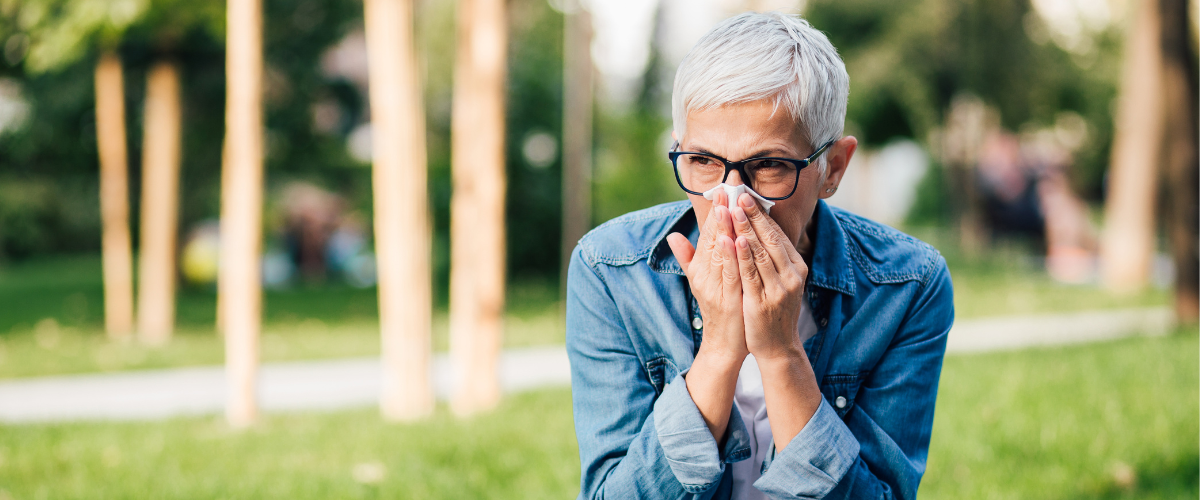Spring is a season of rejuvenation, but for many seniors, it brings with it a host of seasonal allergies. As we age, our immune system becomes weaker, making us more susceptible to allergies. Seniors with allergies may experience symptoms such as sneezing, coughing, itching, and wheezing, making it difficult for them to enjoy the beauty of spring. However, there are many ways to manage spring allergies in seniors.
In this article, we will discuss some tips and remedies that can help seniors deal with seasonal allergies.
Table of Contents
ToggleUnderstanding Spring Allergies:
Before we dive into the tips and remedies, it’s important to understand what causes spring allergies. Spring allergies are caused by pollen, which is released by trees, grasses, and weeds during the spring season. When seniors inhale pollen, their immune system mistakes it as harmful, and releases histamines to fight it. Histamines cause inflammation, leading to symptoms such as sneezing, coughing, itching, and wheezing.
Tips for Managing Spring Allergies in Seniors
1. Stay Indoors During Peak Pollen Times:
One of the best ways to manage spring allergies is to avoid exposure to pollen. Seniors should stay indoors during peak pollen times, which are usually in the morning and evening. They should also keep their windows and doors closed to prevent pollen from entering their home.
2. Use Air Purifiers:
Air purifiers can help seniors breathe easier by removing pollen and other allergens from the air. Seniors should use high-efficiency particulate air (HEPA) filters in their air purifiers to capture pollen and other particles.
3. Clean Your Home Regularly:
Seniors should clean their home regularly to remove pollen and other allergens. They should vacuum their carpets and upholstery, dust their furniture, and wash their bedding regularly.
4. Use Nasal Irrigation:
Nasal irrigation can help seniors flush out pollen and other allergens from their nasal passages. They can use a saline solution or a neti pot to irrigate their nasal passages.
5. Avoid Certain Foods:
Some foods can trigger allergic reactions in seniors with spring allergies. Seniors should avoid foods such as bananas, melons, and cucumbers, which can cross-react with pollen.
Remedies for Spring Allergies
1. Use Over-the-Counter Medications:
Seniors can use over-the-counter medications such as antihistamines, decongestants, and nasal sprays to manage their spring allergies. However, they should consult their doctor before taking any medication, as some medications can interact with other medications they may be taking.
2. Use Herbal Remedies:
Herbal remedies such as butterbur, stinging nettle, and quercetin can help seniors manage their spring allergies. However, seniors should consult their doctor before taking any herbal remedies, as some can interact with other medications they may be taking.
3. Use Essential Oils:
Essential oils such as peppermint, eucalyptus, and lavender can help seniors manage their spring allergies. They can use a diffuser or mix the essential oils with carrier oil and apply it to their skin.
4. Use Acupuncture:
Acupuncture can help seniors manage their spring allergies by reducing inflammation and improving immune function. Seniors should consult an acupuncturist to determine the best treatment plan for them.
Conclusion:
Spring allergies in seniors can be a nuisance. However, with the right tips and remedies, seniors can manage their allergies and enjoy the beauty of spring. Seniors should consult their doctor before trying any new remedies or medications, and should always follow the advice of their healthcare provider.
By taking steps to avoid pollen exposure and using remedies such as medications, herbal remedies, and essential oils, seniors can reduce their allergy symptoms and enjoy the spring season to the fullest.
Want to Learn More?
ConsidraCare’s caregivers for seniors are trained to offer professional support and companionship to seniors. Please reach out to us at wecare@considracare.com or call us at 1-855-410-7971.
FAQ’s:
1. Why am I getting more allergies as I get older?
As we age, our immune system can weaken, making us more susceptible to allergies. Additionally, environmental factors such as increased pollution and exposure to allergens can contribute to the development of allergies.
2. How do you treat allergies in the elderly?
Allergies in the elderly can be managed with medications such as antihistamines, decongestants, and nasal sprays. Seniors should also try to avoid allergens as much as possible and consult with their healthcare provider to determine the best course of treatment.
3. How can I boost my immune system against allergies?
Maintaining a healthy diet, exercising regularly, getting enough sleep, and reducing stress can all help to boost the immune system and reduce the severity of allergy symptoms.
4. Do spring allergies ever go away?
Spring allergies can last for several weeks to several months, but they usually go away on their own once the pollen season ends. However, some people may experience allergies year-round and require ongoing treatment.
5. What are severe allergy symptoms in spring?
Severe allergy symptoms in spring can include difficulty breathing, wheezing, chest tightness, swelling of the face or tongue, and anaphylaxis, which is a life-threatening allergic reaction.
Maryam is a leading writer at ConsidraCare, specializing in senior care. Her well-researched articles are widely recognized for guiding families through the complexities of caring for loved ones, establishing her as a trusted and authoritative voice in the field.


